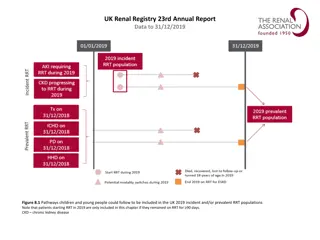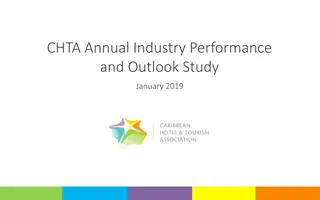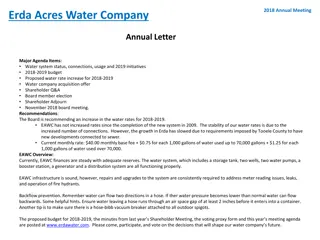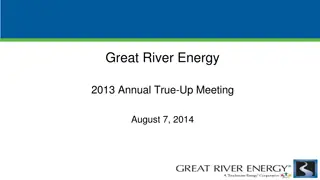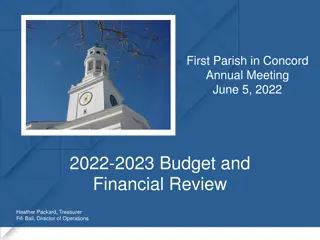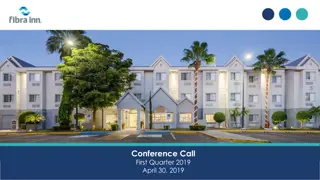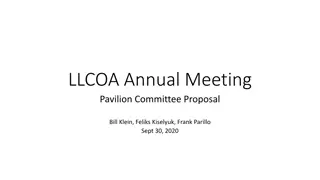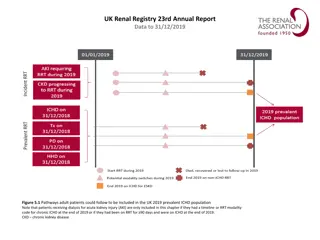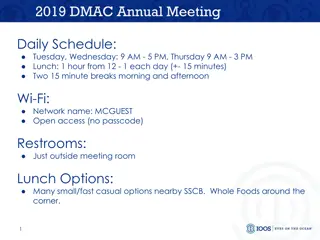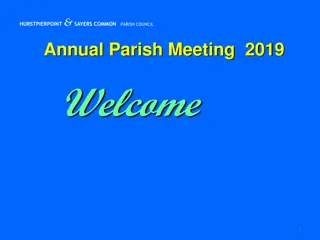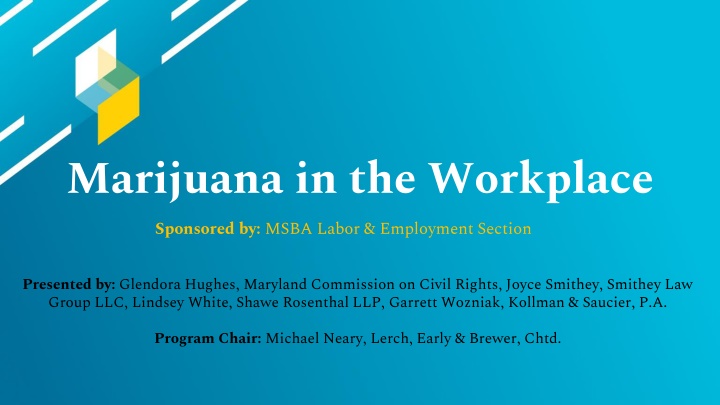
Maryland's Marijuana in the Workplace Laws
Discover insights into Maryland's marijuana laws in the workplace, including drug testing regulations, accommodations under ADA, and the implications of federal and state laws on marijuana use. Delve into pre-employment testing protocols, handling positive test results, and the penalties for non-compliance.
Download Presentation

Please find below an Image/Link to download the presentation.
The content on the website is provided AS IS for your information and personal use only. It may not be sold, licensed, or shared on other websites without obtaining consent from the author. If you encounter any issues during the download, it is possible that the publisher has removed the file from their server.
You are allowed to download the files provided on this website for personal or commercial use, subject to the condition that they are used lawfully. All files are the property of their respective owners.
The content on the website is provided AS IS for your information and personal use only. It may not be sold, licensed, or shared on other websites without obtaining consent from the author.
E N D
Presentation Transcript
Marijuana in the Workplace Sponsored by: MSBA Labor & Employment Section Presented by: Glendora Hughes, Maryland Commission on Civil Rights, Joyce Smithey, Smithey Law Group LLC, Lindsey White, Shawe Rosenthal LLP, Garrett Wozniak, Kollman & Saucier, P.A. Program Chair: Michael Neary, Lerch, Early & Brewer, Chtd.
Overview Marijuana in the Workplace: Maryland Drug Testing Law ADA and Maryland Law on Accommodations The state of Federal and State Laws regarding Marijuana Where is the law going?
Marylands Drug Testing Law An employer with a legitimate business purpose may require an employee or job applicant to submit to a test for use or abuse of controlled substances or alcohol Md. Code Ann., Health-Gen. 17-214(b)(1), (h). 1. Controlled substances are those listed in Schedule I through V under the Federal Controlled Substances Act. Md. Code Ann., Crim. Law 5-101(g)(1). 2. Tests must be performed at state-approved laboratory and employer must inform the individual of the name and address of the testing facility. COMAR 10.10.10.05; Md. Code Ann., Health-Gen. 17-214(b)(1).
Pre-Employment Employers that want to run pre-employment tests must register with Office of Health Care Quality at the Department of Health and Mental Hygiene. 1. Employers may use single-use tests meeting FDA requirements at an appropriate collection site. Md. Code Ann., Health-Gen. 17-214(a)(9), (b)(2). If a positive result, the sample must be sent to a state-approved lab for testing. Md. Code Ann., Health-Gen. 17-214(d).
Positive Tests Employer must send the individual a copy of the lab results, a copy of the employer s written policy on the use or abuse of controlled substances or alcohol, notice of rights to request independent testing of the same sample or results, and notice of intent to take disciplinary action up to and including termination. The information must be sent within 30 days of the test by certified mail or personal delivery. Md. Code Ann., Health-Gen. 17-214(c). 1. Applicants or employees who request an independent follow-up test must pay for the cost of the new test. Md. Code Ann., Health-Gen. 17-214(e)(2).
Penalty Failure to comply with the law is a misdemeanor punishable by a $100 fine for a first offense and $500 for each subsequent offense. Md. Code Ann., Health-Gen. 17-216.
ADA and Maryland Law on Accommodations
What the federal law requires with regard to marijuana? Employers need not tolerate any employee's use of marijuana in the workplace. 42 U.S.C. 12114 (c)(4) and 29 C.F.R. 1630.16(b). Since marijuana is still illegal under Federal law, employers need not reasonably accommodate the current use of marijuana. But be careful to ensure the facts indicate current use. Shirley v. Precision Castparts Corp., 726 F.3d 675 (5th Cir. 2013); Brown v. Lucky Stores, Inc., 246 F.3d 1182 (9th Cir. 2001); Scott v. Harrah's LLC, 2017 WL 1927927 (D. Nev. May 9, 2017). Because the ADA covers recovering or recovered drug users. 29 C.F.R. 1630.3(b).
Is the law different for prescription drugs? Unauthorized use of prescription drugs treated generally the same way. Authorized use of prescription drugs must be accommodated.
Maryland Law 1. The Maryland medical marijuana law does not expressly protect individuals with medical marijuana cards from adverse employment action for using the substance. Md. Code Ann., Health-Gen. 13-3301 to 13-3311. 2. There is no clear duty to accommodate under the Maryland statute. But will the courts agree if the individual is authorized to use marijuana under Maryland law?
The state of Federal and State Laws regarding Marijuana
The state of Federal and State Laws regarding Marijuana Marijuana in all forms is a Schedule I drug under the Controlled Substances Act. 21 U.S.C. 812(b)(1) and (c). Department of Justice rescinded a 2013 memorandum suggesting federal government would not challenge state laws legalizing marijuana. Federal View State laws that make recreational use legal and how that impacts an employer s right to discipline, especially in states with lawful off- duty conduct laws Alaska, California, Colorado, District of Columbia, Maine, Massachusetts, Michigan, Nevada, Oregon, Vermont, and Washington have legalized marijuana for recreational purposes. State View
Laws that make medical use legal What do the laws say and how they differ? Some laws allow employers to prohibit use on premises or on-the-job intoxication. Some laws are silent. Some expressly allow employers to discipline for marijuana use or intoxication in the workplace. Some laws prohibit discrimination against someone having a medical marijuana card Some prohibit retaliation or adverse employment actions for medical marijuana use.
How the case law has developed Arizona: Whitmire v. Wal-Mart Stores Inc., 2019 WL 479842 (D. Ariz. Feb. 7, 2019) (granting summary judgment to plaintiff who was terminated based solely on a positive drug test finding non-discrimination provision in law creates an implied cause of action).
How the case law has developed (cont.) California: Ross v. RagingWire Telecomm., Inc., 174 P.3d 200 (Cal. 2008) (finding no violation of public policy or California s Fair Employment and Housing Act to for a positive marijuana test).
How the case law has developed (cont.) Colorado: Coats v. Dish Network, 350 P.3d 849 (Colo. 2015) (affirming termination for off-duty marijuana use because drug remains unlawful under federal law) Curry v. MillerCoors, Inc., 2013 WL 4494307 (D. Colo. Aug. 21, 2013) (same).
How the case law has developed (cont.) Connecticut: Noffsinger v. SSC Niantic Operating Co. LLC, 273 F. Supp. 3d 326 (D. Conn., 2017) (employers cannot use fact that drug is illegal under federal law to terminate unless of a federal requirement is imposed).
How the case law has developed (cont.) Maine: Bourgoin v. Twin Rivers Paper Co., LLC, 2018 WL 2976309 (Me., Jun. 14, 2018) (employers are not required to pay for marijuana use while on workers compensation because that would conflict with federal law).
How the case law has developed (cont.) Massachusetts: Barbuto v. Advantage Sales and Marketing, LLC, 78 N.E.3d 37 (Mass., 2017) (off-site use of medical marijuana despite drug free policy could be a reasonable accommodation under state law if not an undue hardship on employer s business).
How the case law has developed (cont.) Michigan: Casias v. Wal-Mart Stores, Inc., 695 F.3d 428 (6th Cir. 2012) (employer did not violate state law when it discharged an employee for positive test resulting from prescribed medical marijuana use).
How the case law has developed (cont.) Oregon: Emerald Steel Fabricators, Inc. v. BOLI, 230 P.3d 518 (Or. 2010) (finding no violation of state law when employer terminated employee for positive marijuana test).
How the case law has developed (cont.) Washington: Roe v. Teletech Customer Care Mgmt. (Colorado) LLC, 257 P.3d 586 (Wash. 2011) (finding employers do not need to accommodate medical marijuana use in workplace).
Preemption Arguments? Bourgoin v. Twin Rivers Paper Co., LLC, 2018 WL 2976309 (Me., Jun. 14, 2018) (applying conflict preemption to invalidate a workers compensation order for employer to pay for medical marijuana use)

